
How the Locarno Film Festival brought Chinese films to the West

Chinese cinema has been a recurring feature of the Locarno Film Festival over the last 75 years. From Chen Kaige’s Yellow Earth to Bi Gan’s Kaili Blues, films and filmmakers who went on to transform contemporary Chinese cinema have had their first encounter with international critics at Locarno. This year looks set to continue the tradition.
Chinese film is once again in the spotlight at the Locarno Film Festival. The actor Jackie Chan is to receive a lifetime achievement award, while Chinese-American actor Lucy Liu will be given a career achievement award at this year’s event, which runs from August 6 to 16. The programme includes works by early-career Chinese filmmakers, building on a long tradition of introducing new developments in Chinese cinema to Western audiences.
This year also marks two significant anniversaries in Sino-Swiss relations: it’s 75 years since the establishment of diplomatic ties between Switzerland and China, and 40 years since Chen Kaige’s debut, Yellow Earth – the film widely credited with ushering in the Chinese New Wave of the 1980s – won the Silver Leopard at Locarno.
But the festival’s Chinese connection dates back much further. In 1950, Locarno screened Sorrows of the Forbidden CityExternal link (directed by Zhu Shilin), a costume drama set during the final years of the Qing dynasty. Critics were puzzled: the Swiss newspaper La Liberté referred to it as “a curious film rather than a beautiful one,” while erroneously assuming it was among the first Chinese films ever made.
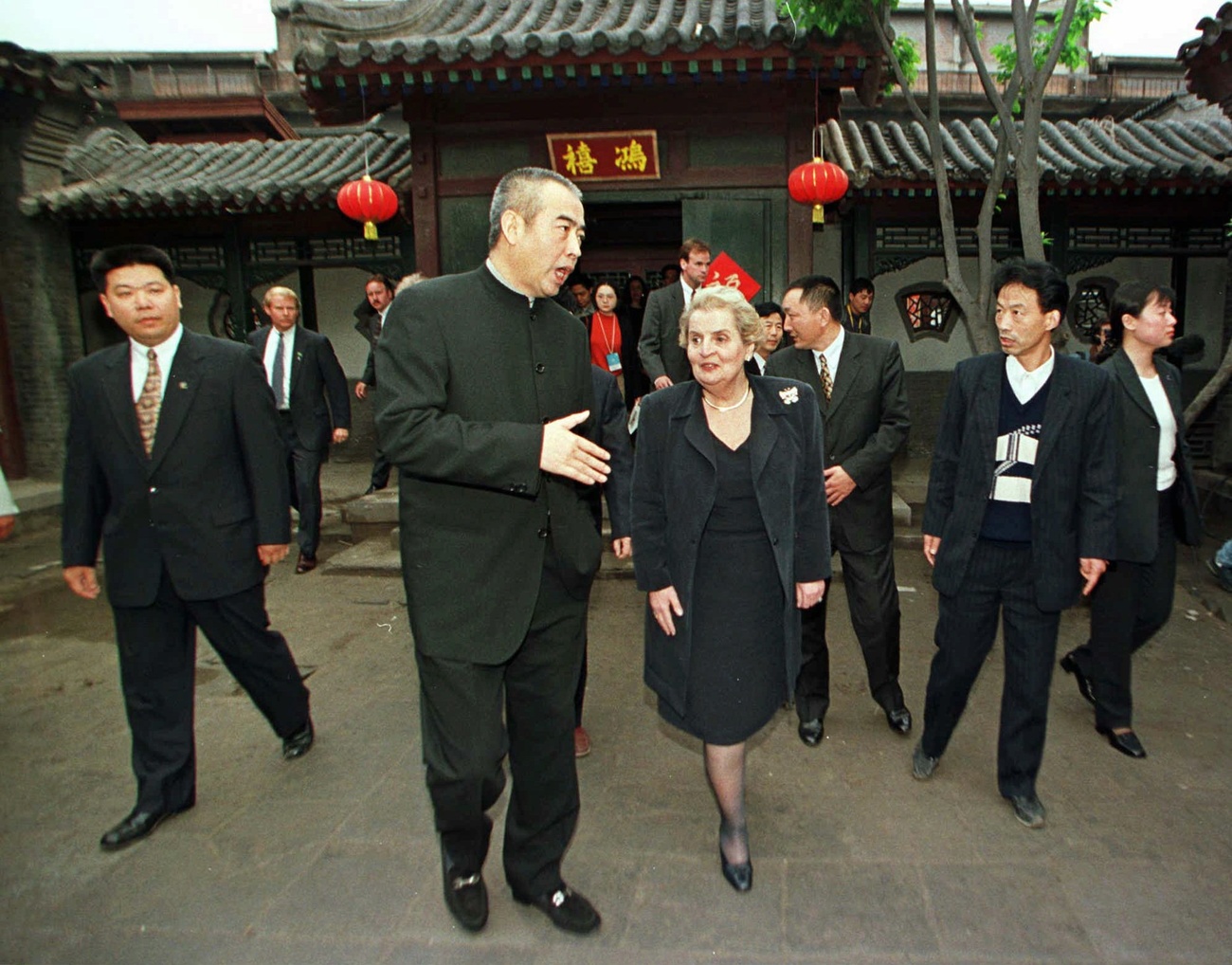
The only door to the West
Perceptions began to shift as Locarno continued to feature Chinese cinema. The Cannes and Venice festivals were unable to screen Chinese films due to the absence of diplomatic relations. Alongside the Edinburgh International Film Festival, Locarno became a significant venue for international critics to view contemporary Chinese works.
Among the films screened there were the war drama The Letter with Feathers (1954, directed by Shi Hui) and New Year’s Sacrifice (1956, directed by Sang Hu), an adaptation of a short story by the renowned Chinese writer Lu Xun. The Hong Kong adaptation of Lu Xun’s The True Story of Ah Q (1958, directed by Yuan Yang’an) earned Kwan Shan the Silver Sail Award for Best Actor at the 1958 festival.
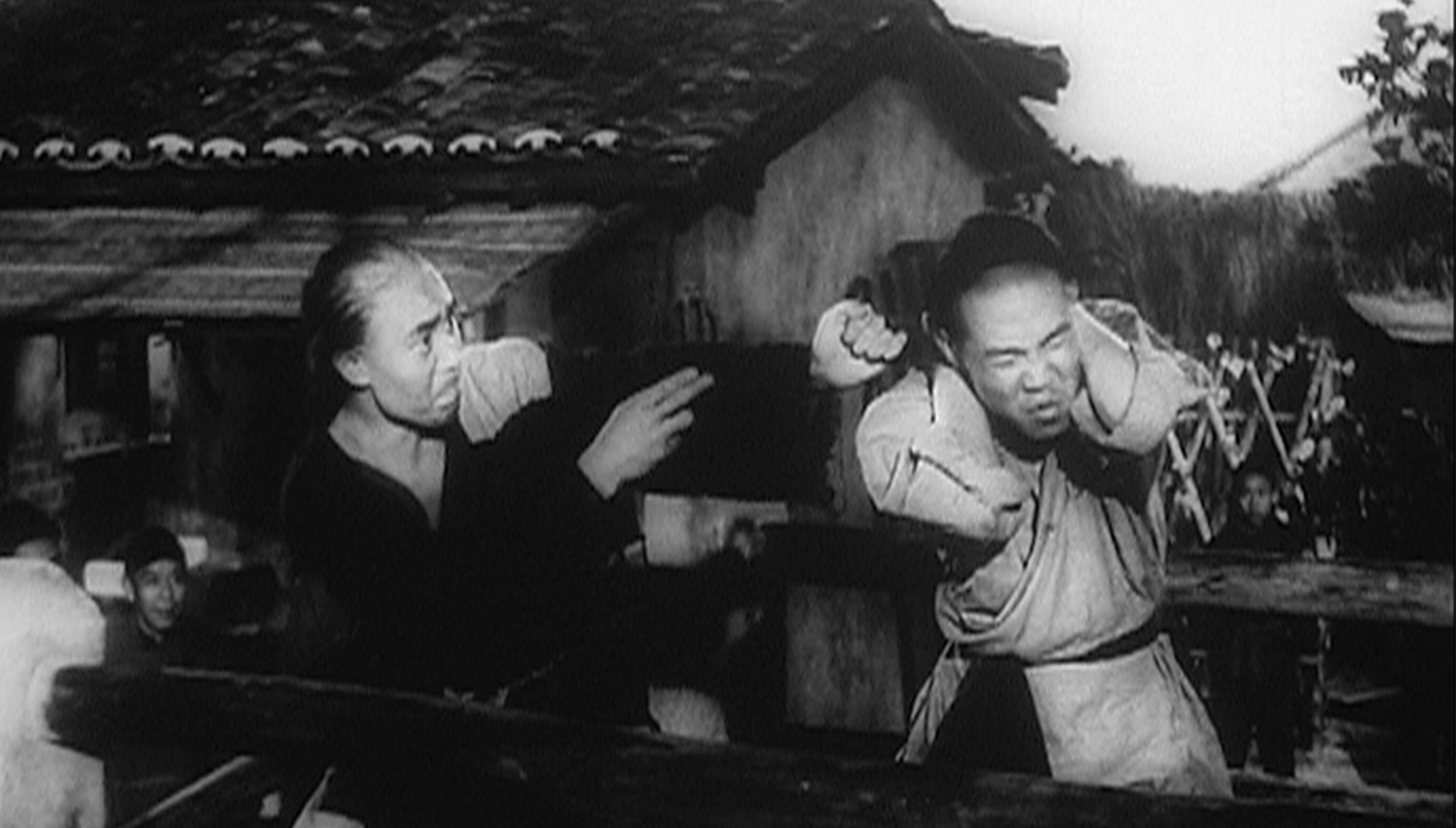
The festival began to play a pivotal role in cultural diplomacy: in 1955, Locarno was the site of one of the first meetings between Chinese filmmakers and Venice Film Festival organisers. Luo Guangda and Chen Shoumei of the China Film Distribution Company met the Italian film critic Francesco Callari to discuss inviting China as an unofficial observer to Venice.
After David Streiff was appointed director at Locarno in 1982, he began modernising the festival. Unlike his peers at other festivals, Streiff was unconcerned about premieres. Instead, he sought to spotlight debut and second features, which he believed were often overlooked on the festival circuit.
With no specialist knowledge of China, Streiff selected Yellow Earth after encountering it at the Hong Kong International Film Festival and decided to include it in Locarno’s main competition. “It’s just my eyes that could recognise quality,” he said in a 2022 interview.
But securing a copy of Yellow Earth proved challenging. The print sent from Beijing was subtitled in English instead of French, and its poor condition made it unfit for public screening. Fortunately, at the last minute the Edinburgh International Film Festival provided a usable copy with English subtitles.
China and Taiwan meet on screen
On August 11, 1985, audiences in Locarno watched Yellow Earth. Cinema history was written later that day, when the Taiwanese competition entry, A Summer at Grandpa’s (1985, directed by Hou Hsiao-hsien), was screened.
It marked the first time that films from both China and Taiwan were shown in competition at an A-list international festival. Another Taiwanese film, Taipei Story (1985, directed by Edward Yang), competed in the FIPRESCI (international critics’ prize) section.
Two weeks before the festival, the Chinese cultural attaché learned that two Taiwanese films would be featured. He wrote to Streiff and the festival president, Raimondo Rezzonico, requesting that the films be labelled as entries from “Taiwan of China” or “Chinese Taipei” instead of the “Republic of China,” which China refused to recognise.
Rezzonico confirmed that the films would be identified as originating from “Taiwan of China” and invited the Chinese ambassador to the festival. Taipei Story won the FIPRESCI, creating an unprecedented moment where both Chinese and Taiwanese cinema were celebrated.
The Marco Müller effect
In 1992, Marco Müller, a sinologist, became Locarno’s artistic director and expanded its industry section, launching the Monte Cinema Verità Foundation, a film market designed to provide start-up support for emerging filmmakers, facilitate theatrical distribution, and promote co-productions between European producers and filmmakers from Asia, Africa and Latin America.
That same year, the Golden Leopard was awarded to Hong Kong director Clara Law for Autumn Moon. Müller brought Crime Story (1993, directed by Kirk Wong and starring Jackie Chan) to the Piazza Grande in 1994.
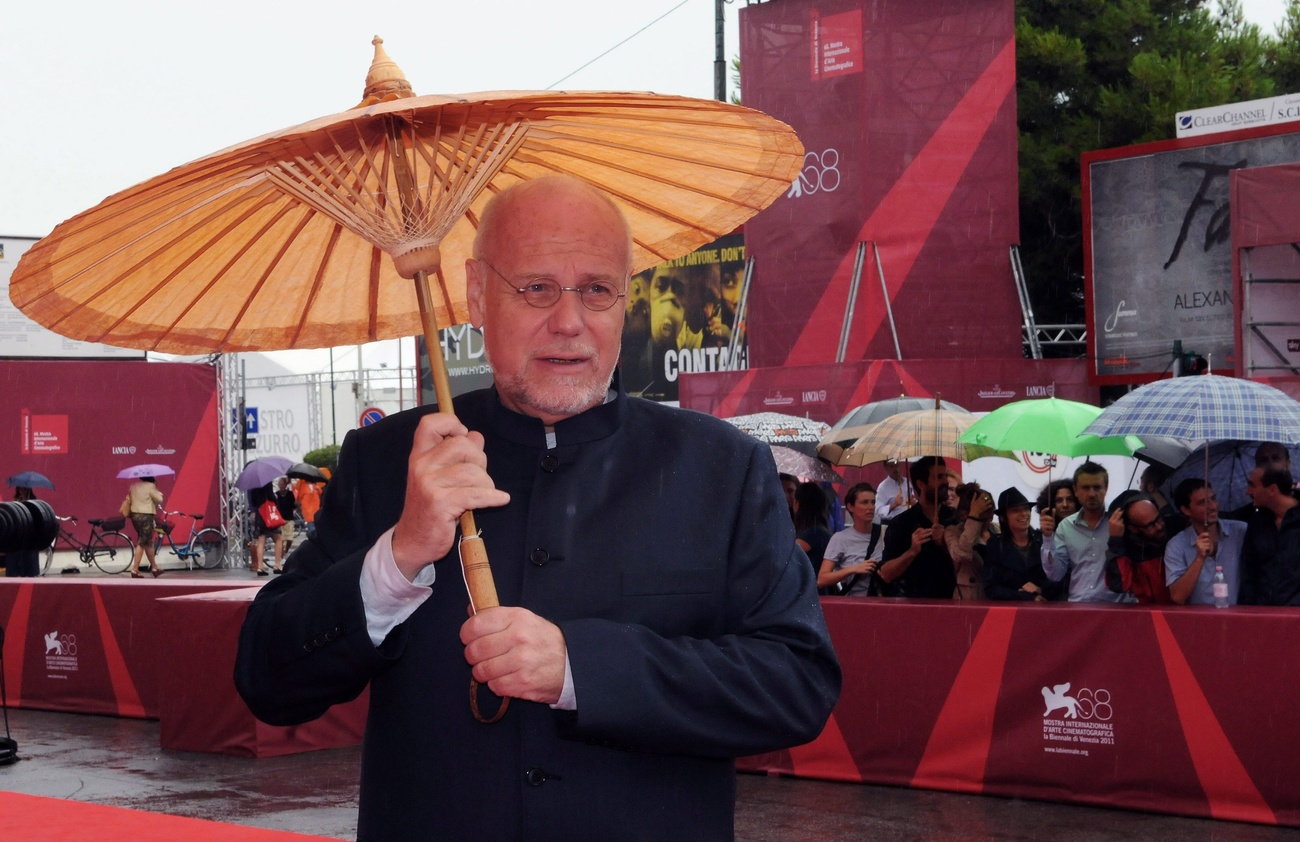
More
The man from Shanghai: Marco Müller keeps sowing the future of cinema
Müller recalls that part of the Locarno arthouse audience was scandalised by his programming choices. Nevertheless, he was able to present Asian genre films, big Hollywood productions, and art cinema masterpieces back-to-back on the Piazza Grande. “Everybody was there!” says Müller.
For his final edition of Locarno in 2000, Müller selected 18 films for competition, including a “surprise.” The premiere of the mystery addition was scheduled for the festival’s penultimate day. Only then did the organisers reveal that the “surprise film” was Father, the directorial debut of the Chinese writer Wang Shuo.
The timing ensured that Chinese authorities had no opportunity to intervene or demand the film’s withdrawal. Completed in 1996, the film had been shelved by the Chinese Film Bureau because Wang began shooting it without a permit. Father, which won the Golden Leopard at Locarno, was not officially shown in China until 2004, when it was released on DVD.
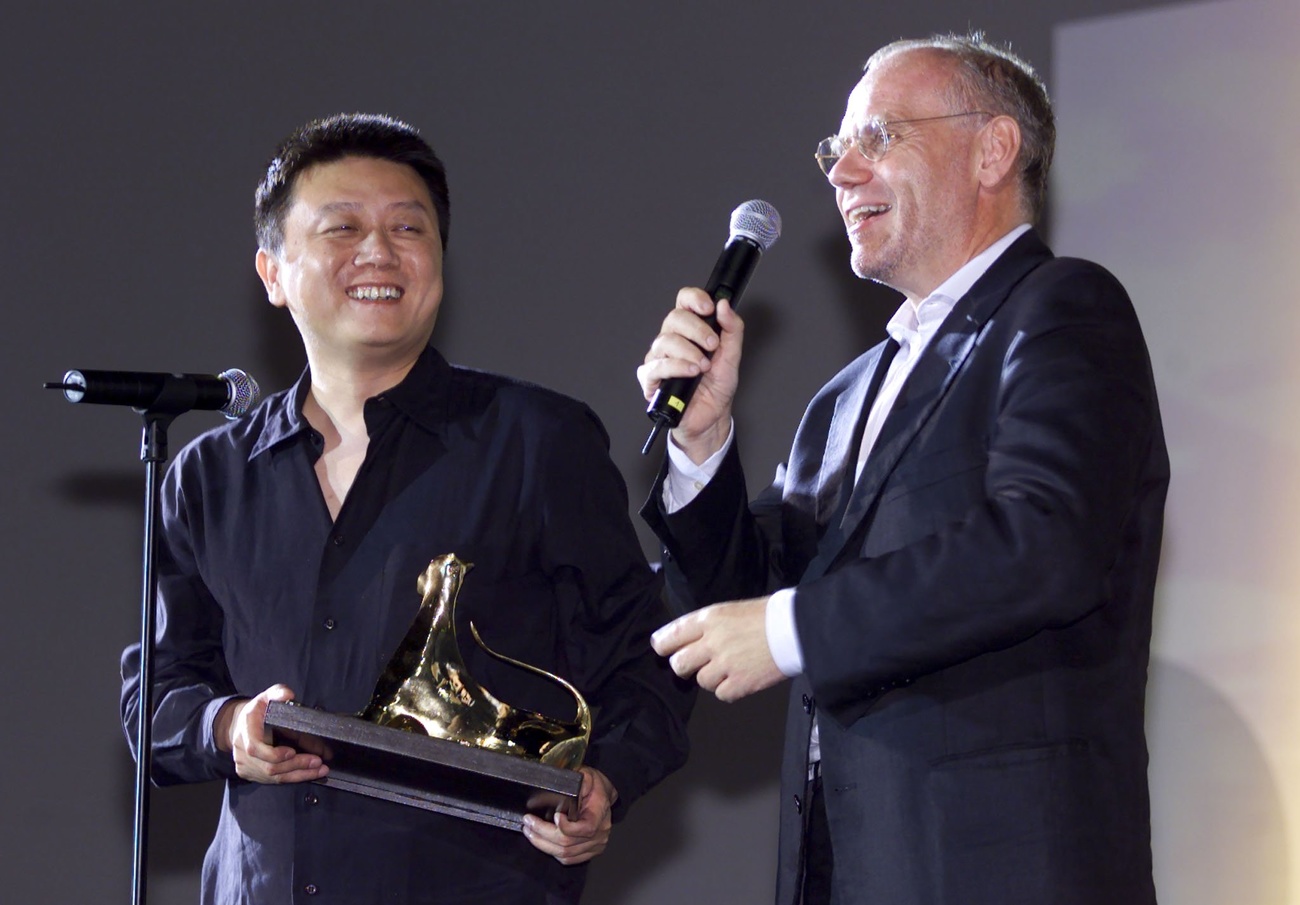
During Müller’s nine years at Locarno, the festival earned a reputation for what Stephanie Bunbury described in a 2000 report for Senses of Cinema as “obscure, provoking, stimulating, and exploratory films” that made no concessions to market demands. The premiere of Father was his “parting gift” to the festival, Müller says.
Chinese at home in Locarno
The screening of outstanding Chinese films has continued. In 2009, Xiaolu Guo’s She, a Chinese won the Golden Leopard. In 2015, Bi Gan won the Best Emerging Director award for his debut film Kaili Blues. This was the first international recognition for Bi, who today is celebrated for his innovative visual language and as one of the key auteurs of contemporary Chinese cinema.
Two years later, Wang Bing – one of the most prominent documentary filmmakers – won the Golden Leopard for Mrs. Fang, which helped to sell the film to TV stations across Europe. Wang returned to Locarno in 2024 with the second instalment of Youth, his epic three-part documentary on the young generation in the mid-2010s China.
Locarno has long been regarded as “a festival of discoveries,” a reputation rooted in bold curatorial choices beyond political divides and market expectations. The 2025 programme for the festival, now under the leadership of Giona A. Nazzaro, reveals a new trajectory chosen by some young Chinese filmmakers who, after studying overseas, are pursuing careers in Europe or North America.
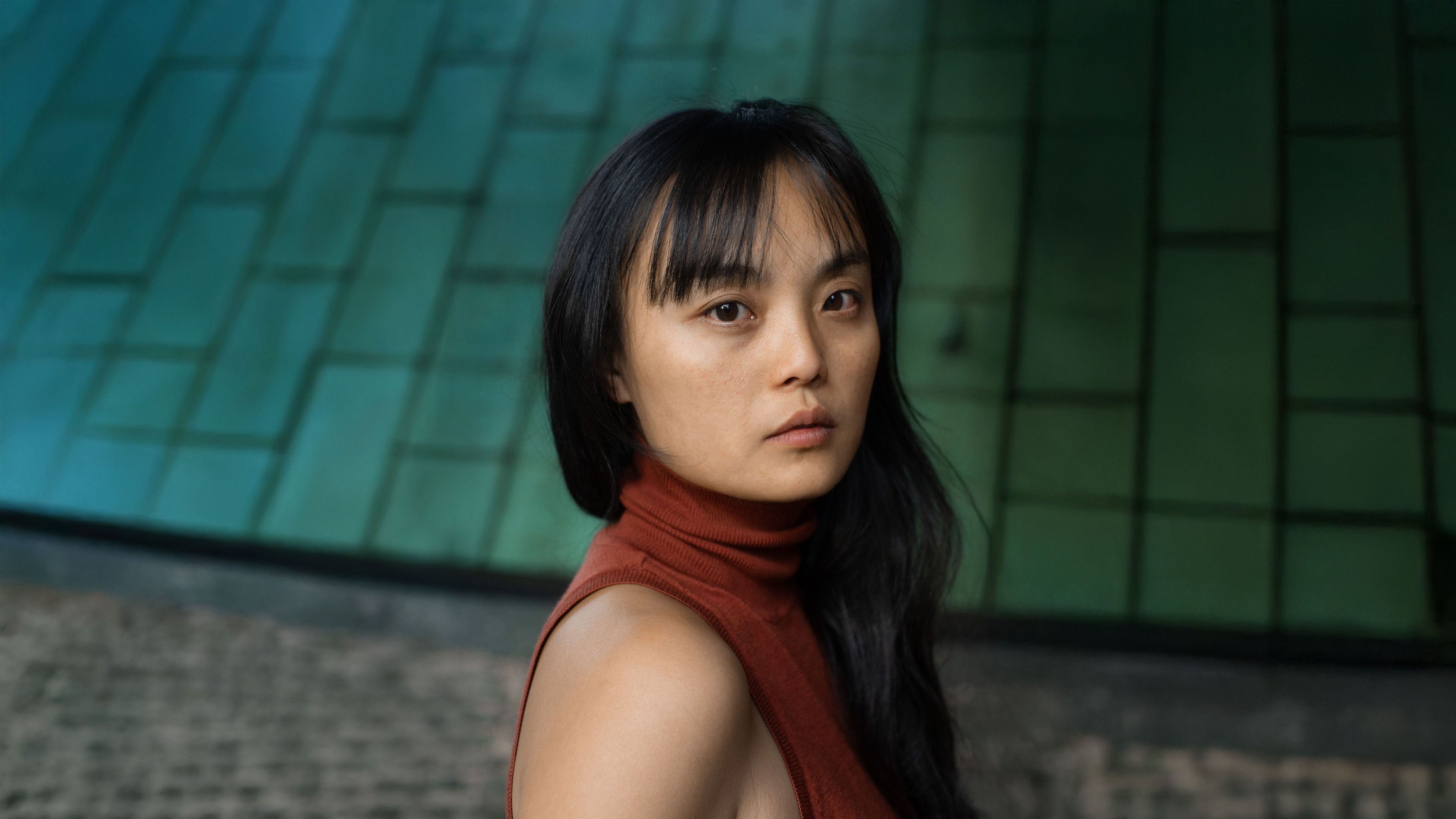
Berlin-based Ruan Lan-Xi brings her 66-minute film, The Plant from the Canaries, to the Concorso Cineasti del Presente, a section dedicated to first or second feature films, while the Mongolian-Chinese filmmaker Altay Ulan Yang, now based in Los Angeles, comes to Locarno with his US-produced short film Hyena. Locarno’s exploration of Chinese cinema continues.
Edited by Catherine Hickley/gw

In compliance with the JTI standards
More: SWI swissinfo.ch certified by the Journalism Trust Initiative




























You can find an overview of ongoing debates with our journalists here . Please join us!
If you want to start a conversation about a topic raised in this article or want to report factual errors, email us at english@swissinfo.ch.